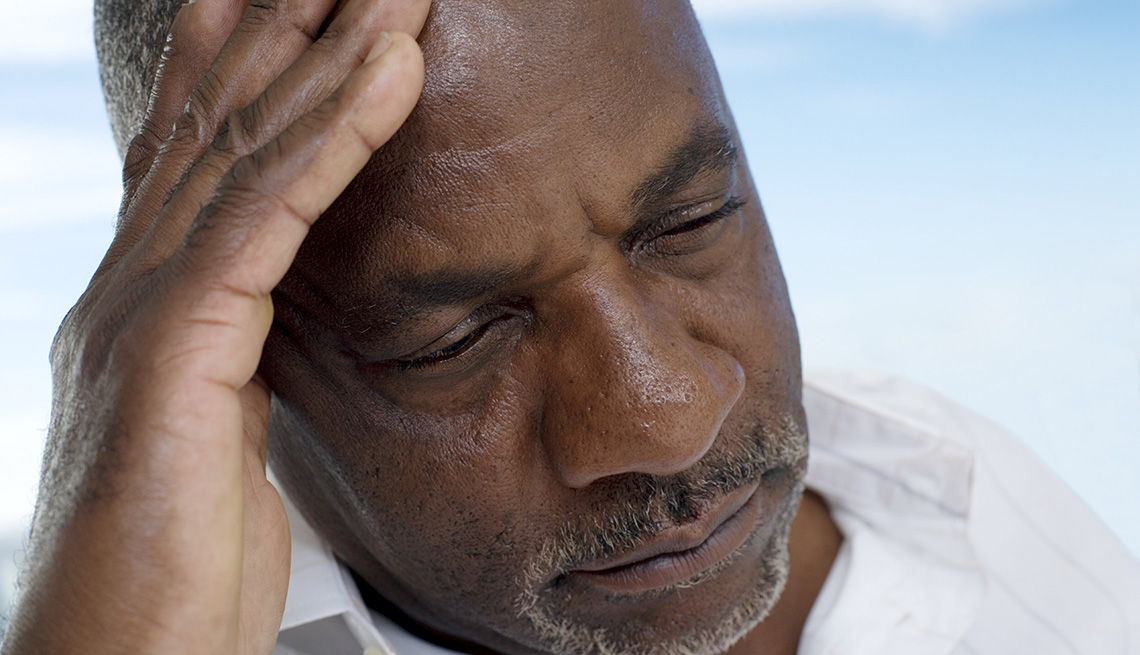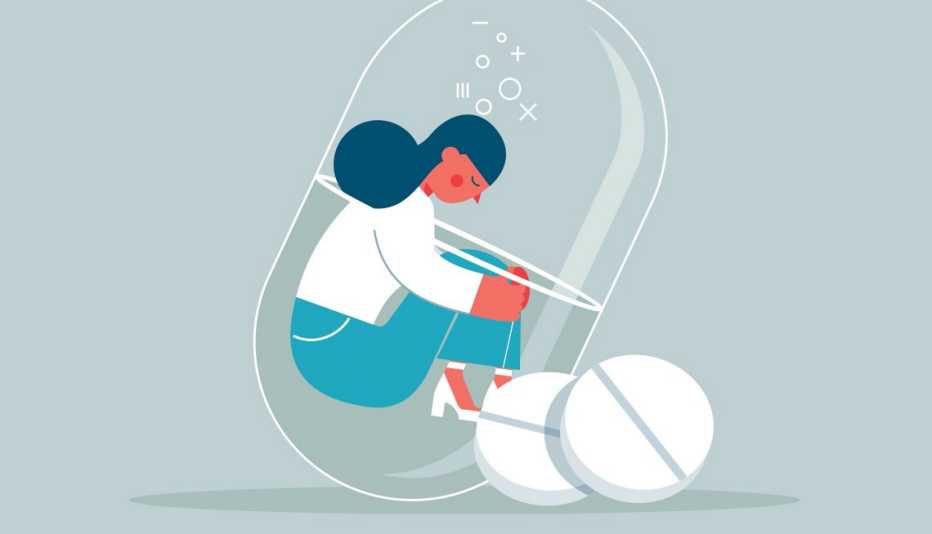Staying Fit
We've all had moments in our lives when we feel sad or down in the dumps. But if weeks go by and those feelings linger, it may be depression. More than mere sadness, depression can suck the joy out of life and leave you feeling overwhelmed — in some cases, unable to function.
The good news: Depression is very treatable. Before taking action, here are seven things to know about this common condition.
1. Depression can hurt. Literally
Sadness is a symptom we're all familiar with, but depression symptoms aren't limited to the mind. “In older people, depression tends to manifest itself more often with physical symptomology than in younger people. ‘I hurt more. I just don't feel right physically,'” says Bruce Sutor, M.D., a psychiatrist at the Mayo Clinic, in Rochester, Minnesota. Common symptoms: headaches, joint pain, fatigue, sleep disturbances, loss of appetite and gastrointestinal issues.


AARP Membership— $12 for your first year when you sign up for Automatic Renewal
Get instant access to members-only products and hundreds of discounts, a free second membership, and a subscription to AARP the Magazine.
And if left untreated — which happens all too often when doctors are trying to get to the bottom of aches and pains and not asking about possible emotional issues — it can have dire consequences. The combination of mental and physical pain can be debilitating. In fact, clinical depression is the leading cause of disability worldwide, according to the World Health Organization. Says Sutor: “We tell our primary care colleagues, ‘If you've got people coming in with different physical complaints that you just can't get to the bottom of, start thinking depression.'”
2. Women are particularly prone to depression
Women are almost twice as likely to be diagnosed than men, according to the Mayo Clinic. Some suspect this is due to hormonal fluctuations, particularly during menopause. Others believe that women may be more prone to chronic stress — say, the kind that might come from taking care of an elderly parent — which can take a toll and lead to depression.
But it may also be that depression simply shows up differently in men, who often appear angry or irritable, rather than sad, says Brian P. Cole, an associate professor of counseling psychology at the University of Kansas. He notes that this tendency can be traced back to boyhood, a time when many men are socialized to believe that it is unacceptable to show vulnerability. “It is important that we normalize the fact that men get depressed and that it is acceptable to seek help from family, friends and professionals,” Cole says.





































































